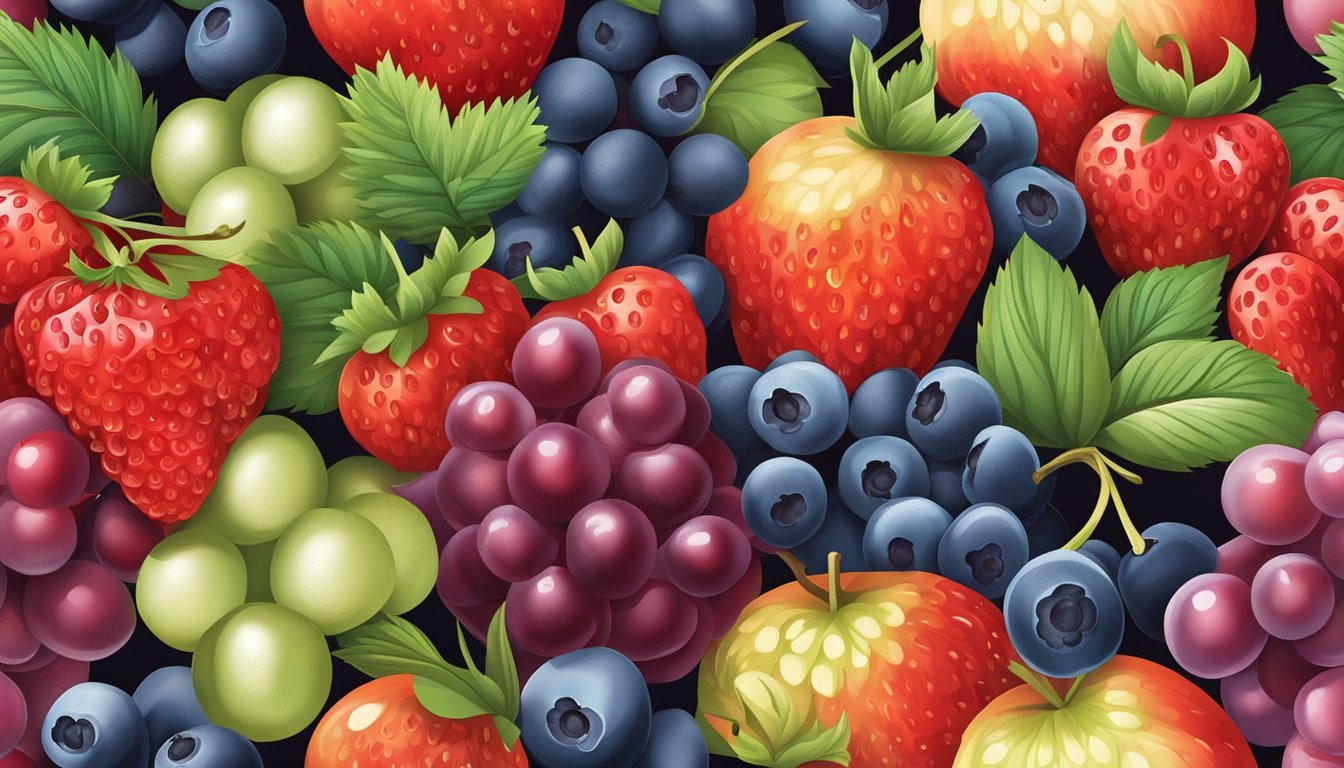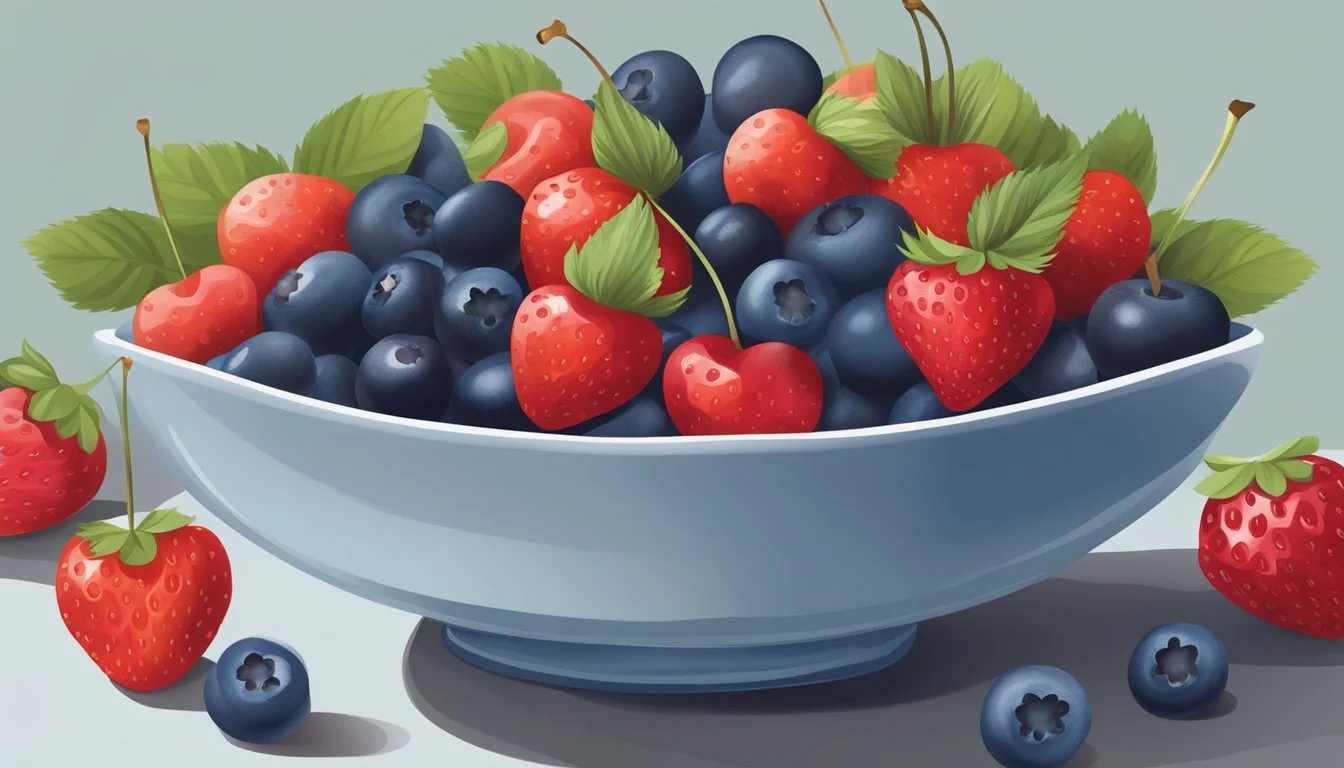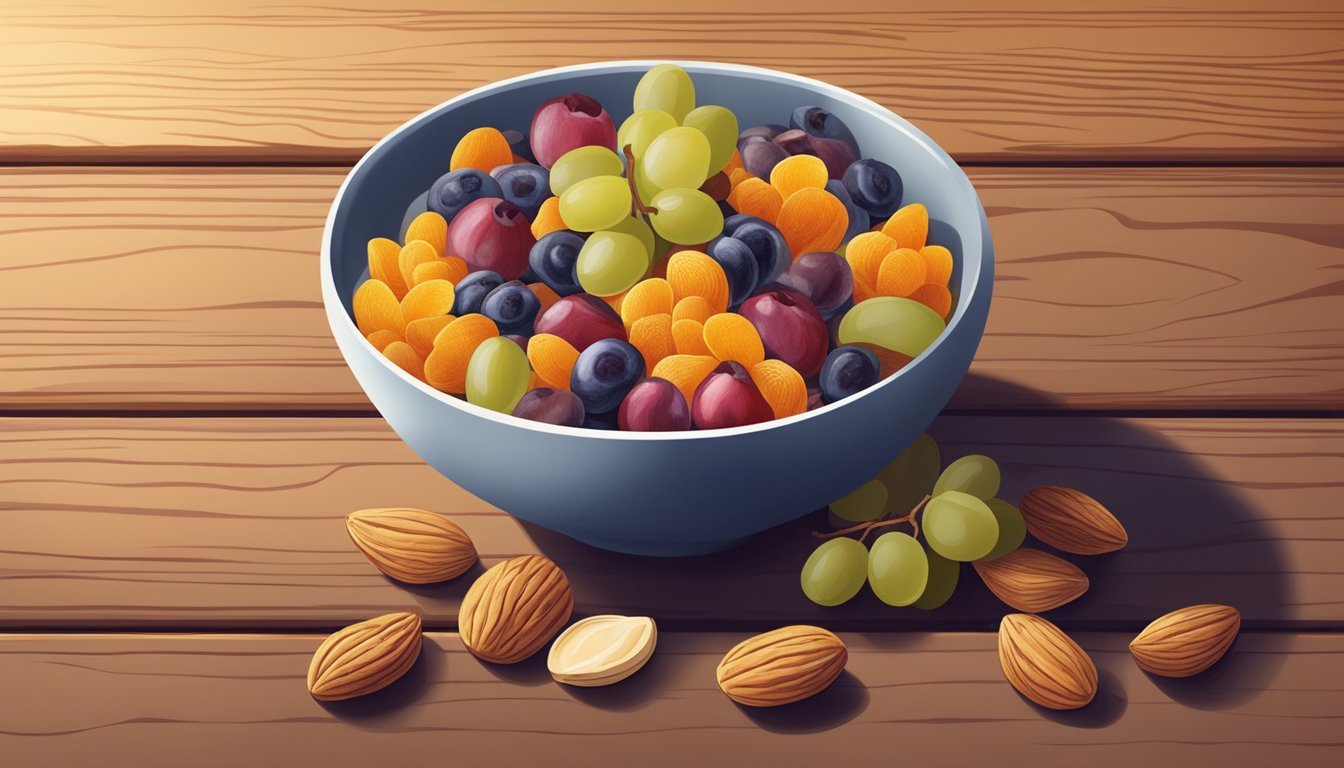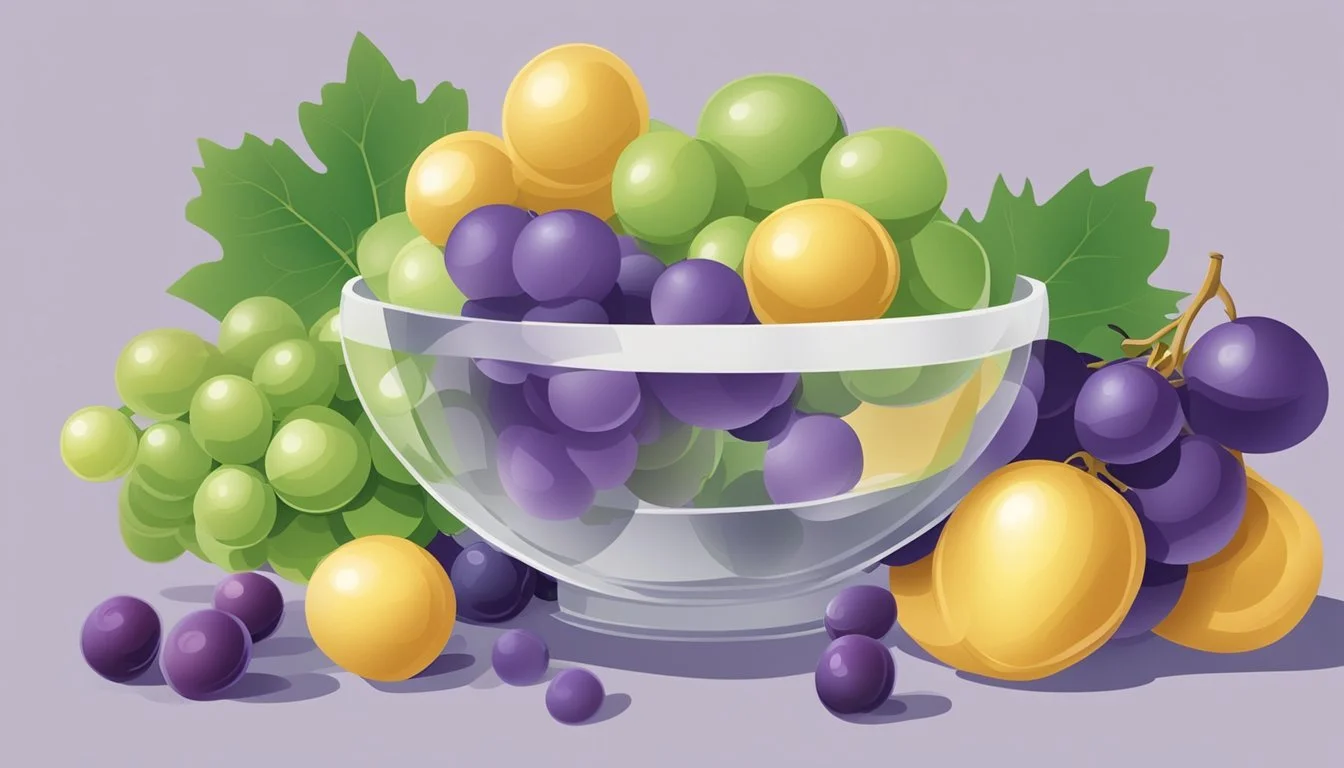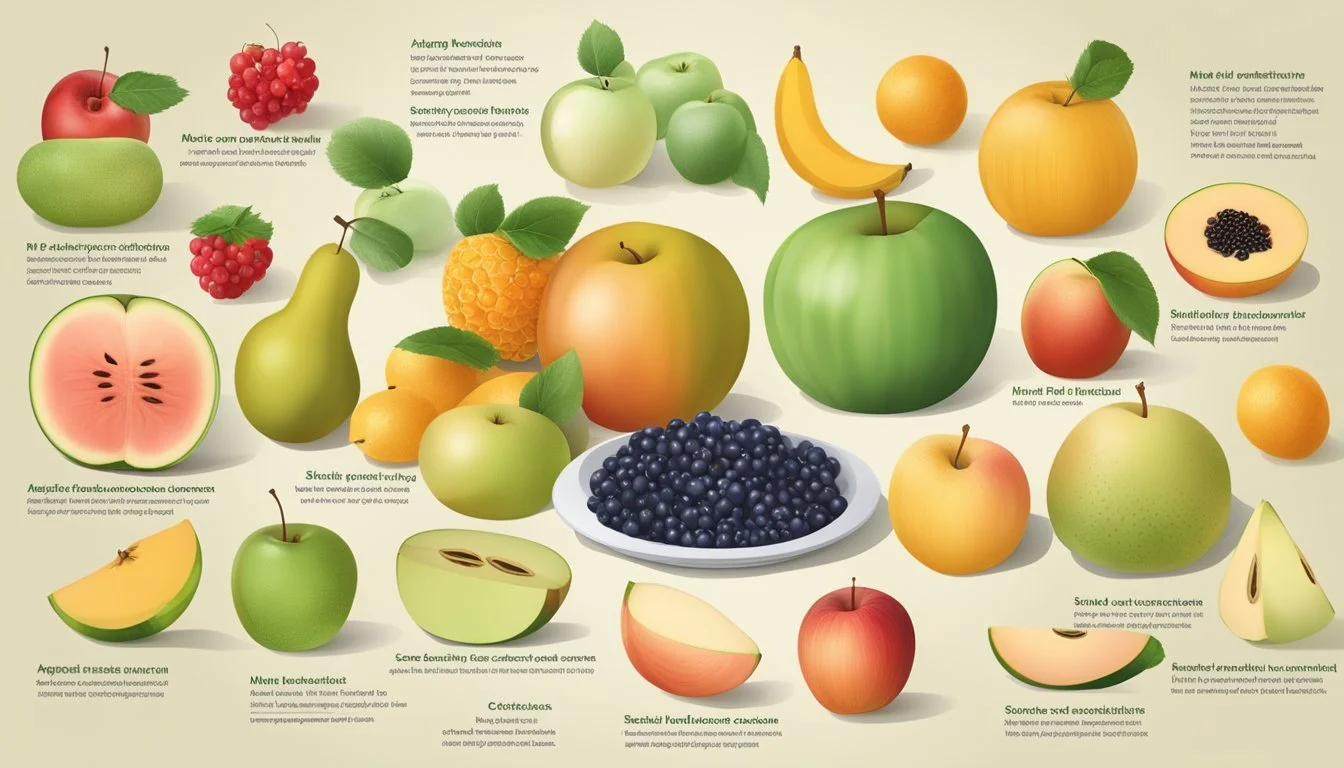Grapes Substitutes
Best Alternatives for Recipes and Snacks
When grapes are unavailable or unsuitable for certain diets, finding the right substitutes can be a culinary challenge. Fortunately, several fruits and oils can seamlessly replace grapes in various recipes. Blueberries, for example, provide a sweet, tart flavor and high levels of antioxidants, closely mirroring the nutritional benefits of grapes. Blueberries are also rich in fiber and vitamin C, making them an excellent substitute.
Raspberries are another versatile option that can stand in for grapes in many dishes. Packed with nutrients and antioxidants, they promote heart health and can be used in jams, jellies, juices, and even wine. For those requiring a substitute for grapeseed oil, oils such as canola, olive, and avocado offer suitable replacements without sacrificing flavor or nutritional value. Each alternative brings its own unique benefits, ensuring that your dishes remain flavorful and healthy.
Understanding Grapes and Their Unique Characteristics
Grapes are not only delicious but are packed with essential nutrients and health benefits. They come in various types, each with a unique flavor and texture, offering significant contributions to a healthy diet.
Nutritional Value of Grapes
Grapes are rich in vitamins and minerals, making them a nutritious addition to any diet. They contain vitamins C and K, both vital for health. Potassium, another key component in grapes, helps regulate blood pressure. Additionally, they provide a good amount of fiber, which aids digestion.
A typical serving of grapes includes:
Calories: About 100
Carbohydrates: Approximately 27 grams
Fiber: Roughly 1.4 grams
Their low-calorie and high-fiber content make them an excellent snack option for those aiming to maintain or lose weight.
Health Benefits of Grapes
Grapes are renowned for their health benefits. The high levels of antioxidants they contain help combat oxidative stress and reduce inflammation. These antioxidants, particularly resveratrol, are linked to improved heart health by protecting the cardiovascular system.
Moreover, grapes help control blood sugar levels due to their low glycemic index, making them suitable for people with diabetes. They also contain anti-cancer properties, reducing the risk of various cancers. The combination of dietary fiber and antioxidants further promotes gut health, ensuring a healthy digestive system.
Including grapes in the diet can support overall well-being and prevent chronic diseases.
Grapes Substitutes Overview
Grape substitutes offer a variety of nutritional benefits and flavors, making them suitable for different dietary needs and personal preferences. These alternatives can be used in various recipes, catering to health goals, dietary restrictions, and availability.
Why Look for Grape Substitutes?
Individuals may need grape substitutes due to dietary restrictions, allergies, or personal preference. Some people might avoid grapes due to high sugar content, seeking lower-sugar options for weight management or diabetic diets. Others may be allergic to grapes, requiring safe alternatives that provide similar texture and taste.
Grapes can be high in calories and may not fit into certain health goals such as weight loss. Substitutes can offer nutritional values like fiber and antioxidants without compromising on flavor.
Factors to Consider When Choosing Substitutes
When selecting grape substitutes, consider the nutritional content, flavor, and texture. Blueberries are a great choice due to their sweet-tart flavor and high levels of antioxidants and fiber. Raspberries provide a similar texture, packed with nutrients and suitable for making various products like jams and juices.
Availability and storage are essential factors. Fresh alternatives may have a shorter shelf life, whereas dried options like raisins can be stored longer. Personal preferences also play a role. For instance, people might opt for blackberries for their slightly tangy taste or apples for a crunchy texture.
Consider dietary needs and health goals. If you’re aiming for weight loss, opt for lower-calorie fruits. Ensure the substitute aligns with your nutritional requirements, whether it’s high in vitamins, fiber, or low in sugar.
Use this guide to find the best grape substitute to suit your needs while ensuring it seamlessly fits into your diet and health regimen.
Fruit-Based Grapes Substitutes
When looking to replace grapes in recipes or snacks, several fruit-based alternatives can offer similar flavors, textures, and nutritional benefits. Incorporating berries and other fruits ensures that the essential taste, fiber, and vitamin content are preserved.
Berries as Substitutes
Blueberries serve as an excellent grape substitute due to their sweet, tart flavor and high levels of antioxidants. Blueberries also provide a good amount of fiber and vitamin C, making them a nutritious option. They can be consumed raw, added to smoothies, or used in baking.
Raspberries, part of the rose family, can replace both red and white grapes easily. Known for their rich nutrient profile and heart-healthy antioxidants, raspberries are versatile. They work well in fruit salads, jams, and jellies, and can even be used to make homemade wine.
Blackberries also make a viable alternative to grapes thanks to their sweet and slightly tart taste. They are packed with vitamins and fiber, making them a healthy choice. Blackberries can be enjoyed fresh, baked into desserts, or added to breakfast dishes like yogurt and oatmeal.
Other Fruit Alternatives
Cherries can substitute for grapes, providing a burst of sweetness and tartness. Fresh cherries work well in salads and desserts, while dried cherries can replace raisins in many recipes.
Raisins, the dried variant of grapes, naturally serve as a grape substitute. They are perfect for baking, snacking, and adding to a variety of dishes, offering a concentrated sweetness and chewiness.
Apples, particularly when sliced or diced, can imitate the crunch and sweetness of grapes. They are rich in fiber and vitamins, suitable for salads, baking, and as a snack.
Melons, such as cantaloupe and honeydew, can also sub in for grapes. With their juicy texture and mild sweetness, melons are great for fruit salads and chilled desserts.
Mangos offer a tropical twist and can replace grapes in many dishes. Their juicy and sweet flesh pairs well with a variety of fruits in salads and smoothies.
Cranberries, especially the dried form, add a tangy flavor similar to tart grapes. They are useful in baking, trail mixes, and salads.
Incorporating these fruit alternatives ensures that you maintain the desired taste and nutritional benefits in your recipes.
Vegetables and Legumes as Substitutes
Opting for vegetables and legumes as grape substitutes offers diverse nutritional benefits and can be integrated into various dishes. These alternatives bring unique flavors and textures while providing essential vitamins and fiber.
Vegetable Alternatives
Cucumbers can be an excellent substitute due to their mild, refreshing flavor. Eaten raw, they add a crunchy texture to salads and snacks. They are low in calories and high in water content, making them a hydrating choice.
Green beans have a slightly sweet and grassy flavor, often enhanced when lightly cooked with olive oil. They are rich in fiber and vitamins, promoting digestive health and offering a satisfying crunch.
Avocados offer a creamy texture with healthy fats and essential nutrients. They can be used in salads, spreads, and even smoothies. Their mild, buttery flavor complements various dishes, contributing to a balanced diet.
Legumes and Seeds as Substitutes
Beans such as kidney or black beans can replace grapes in some recipes due to their texture and nutritional profile. Rich in protein and fiber, they support heart health and help maintain stable blood sugar levels.
Nuts like walnuts and almonds add crunch and nutritional benefits. High in healthy fats and vitamins, they can be used in salads or as a snack.
Seeds, particularly sunflower seeds, provide a crunchy alternative with a nutty flavor. They are packed with healthy fats, vitamins, and minerals, contributing to a varied and nutritious diet. Eaten raw or roasted, they enhance the texture and nutritional content of many recipes.
Using Dried Fruits and Nuts
Dried fruits and nuts offer a variety of flavors, textures, and nutritional benefits, making them excellent substitutes for grapes in many recipes. They provide sweetness, crunch, and a range of essential nutrients.
Dried Fruits for Sweetness and Texture
Dried fruits such as raisins, cranberries, and dates are excellent substitutes for grapes. They offer natural sweetness and an enjoyable chewy texture.
Raisins are a popular option, rich in fiber and antioxidants. They can be used in everything from salads to baked goods.
Dried cranberries add a tart flavor and are high in vitamins and fiber, making them a healthy snack or addition to dishes.
Dates provide a caramel-like sweetness and are packed with fiber and essential minerals. They are often used in recipes for energy bars and desserts.
Whether eaten alone as a snack or mixed into meals, dried fruits can enhance both flavor and nutrition.
Nuts for Crunch and Nutritional Benefits
Nuts such as almonds, walnuts, and cashews add a satisfying crunch and significant nutritional benefits to dishes in place of grapes.
Almonds are an excellent source of healthy fats, fiber, and protein. They can be consumed as a snack or used in recipes like trail mixes and stir-fries.
Walnuts provide a rich taste and are high in omega-3 fatty acids, making them a heart-healthy addition to various dishes.
Cashews offer a creamy texture and are also rich in healthy fats and protein. They can be used to make nut butter or added to various recipes for extra crunch.
Incorporating nuts into meals can enhance both taste and nutritional value, providing essential nutrients and a satisfying crunch.
Substitutes in Cooking and Baking
When replacing grapes in both sweet and savory recipes, there are several suitable options that retain the desired flavor, texture, and health benefits.
Sweets and Desserts Alternatives
Blueberries offer a sweet, tart flavor and high antioxidant levels, making them ideal for pies, muffins, and other baked goods. They can be used fresh, cooked, or in jams and jellies. Blueberries also provide a good source of fiber and vitamin C.
Raisins make an excellent substitute in baking. They work well in cakes, muffins, and cookies, adding a chewy texture. While raisins offer a concentrated sweetness, they also contribute to the nutritional profile with fiber and iron.
Berries like strawberries and raspberries can replace grapes in desserts. Their vibrant colors enhance the appearance of dishes. These berries are rich in vitamins and can be used fresh, cooked, or processed in jellies.
Savory Recipes Solutions
Avocado is a versatile substitute in salads and savory dishes. It provides a creamy texture and healthy fats, making it a nutritious alternative. Avocado can replace grapes in cold dishes, adding a rich flavor profile.
Olive oil can replace grapeseed oil in cooking. It is suitable for dressings, marinades, and sautéing at moderate temperatures. Olive oil offers a fruity flavor and numerous health benefits such as heart-healthy fats.
Vinegar like balsamic or apple cider can replace grapes in recipes that require a tangy flavor. It can be used in salad dressings, marinades, and sauces. Vinegar offers acidity and complexity, enhancing the overall taste of the dish.
Non-Fruit Substitutes
Non-fruit substitutes for grapes offer a variety of flavors, textures, and health benefits. These alternatives can provide satisfying options for those looking to replace grapes in their diet, either due to allergies or preference.
Grain-Based Options
Grain-based options, like granola, oats, and seeds, can make excellent substitutes for grapes in various dishes. Granola combines nutrients from grains, nuts, and dried fruits, offering a crunchy texture and sweet taste. Oats are versatile, providing fiber and healthy carbohydrates. They can be incorporated into smoothies, oatmeal, or yogurt to add bulk and nutrition without the sugary content of grapes.
Seeds like chia or flaxseeds add healthy fats, fiber, and a mild nutty flavor. They can be sprinkled over salads, mixed into baked goods, or blended into shakes. These options not only emulate the satisfying crunch of grapes but also deliver essential nutrients and sustained energy throughout the day.
Sweet and Savory Treats
For those with a sweet tooth, dark chocolate and snack bars provide delicious alternatives. Dark chocolate, with its rich flavor and antioxidants, can be enjoyed in small quantities. Snack bars containing oats, nuts, and dried fruits offer a balanced mix of sweetness and nutrition. Look for options low in added sugars and high in whole ingredients to maximize health benefits.
On the savory side, seasoned nuts and rice crackers can serve as tasty replacements. Nuts offer protein, healthy fats, and a satisfying crunch, while rice crackers add a light, crispy texture to snacks or mealtime. Both options provide a range of flavors from salty to spicy, catering to various taste preferences.
Beverage Alternatives
For those looking to replace grapes in beverages, there are several alternatives that offer unique flavors and health benefits. These substitutes can be used in smoothies, juices, or even to create non-alcoholic versions of traditional alcoholic drinks.
Juice and Smoothies as Substitutes
Blueberry Juice is a popular choice due to its sweet, tart flavor and high levels of antioxidants. It is rich in fiber and vitamin C, making it a nutritious addition to any diet. Blueberry juice can be a refreshing drink on its own or included in smoothies.
Raspberry Juice also makes an excellent substitute. Known for its nutrient density, raspberries provide antioxidants and can promote healthy heart function. They blend well into smoothies or can be enjoyed as freshly pressed juice.
Pear Nectar is another option that offers a sweet and slightly spicy flavor. This makes it suitable for those looking for a different yet satisfying fruit juice. It's often mixed with other ingredients like ginger beer for an added kick.
Using Alternatives in Alcoholic Beverages
Pear Nectar can replace wine in cocktails. When mixed with the juice of half a lime and topped with ginger beer, it creates a delicious non-alcoholic beverage that resembles the complexity of wines.
Non-Alcoholic Wine can utilize grape juice to maintain the fruity notes typical of traditional wine without the alcohol. This makes it suitable for minors or those avoiding alcohol.
For Brandy Substitutes, grape juice itself provides a natural sweetness and fruity profile. This can be used in both cooking and beverages, offering a safe option for children and those preferring non-alcoholic drinks.
Each of these substitutes brings its own flavor and health benefits, offering versatile options for beverage lovers.
Health Considerations and Dietary Restrictions
When looking for grape substitutes, it's essential to consider various health and dietary factors. Key aspects include finding low-calorie alternatives and addressing specific dietary needs such as allergies and nutrition-related restrictions.
Low-Calorie Substitutes
For those aiming to manage their weight or reduce calorie intake, certain fruits serve as effective substitutes for grapes. Blueberries are a notable option. They are low in calories but provide a similar sweet and tart flavor. Moreover, they are high in antioxidants, fiber, and vitamin C, adding substantial nutritional value.
Strawberries also make an excellent low-calorie option. A single cup of strawberries typically contains around 50 calories, making them a great choice for those on a diet.
Incorporating these substitutes can help maintain a healthy body weight and offer added health benefits.
Substitutes for Specific Dietary Needs
Individuals with allergies or dietary restrictions must scrutinize their fruit choices. For example, those allergic to citrus fruits may opt for non-citrus substitutes like blueberries or apples. These fruits not only avoid triggering allergies but also provide essential nutrients.
People with diabetes or sugar restrictions must be cautious. Berries, including raspberries and blackberries, are low in natural sugars and have a low glycemic index. They support better blood sugar control and can be a safer option.
Pomelo juice is another substitute but may interact with certain medications similar to grapefruit. Those with such concerns should select alternatives like apples or pears.
Adapting fruit choices considering health constraints ensures that dietary needs are met without compromising nutrition.
Storage and Preservation
Proper storage and preservation techniques are crucial for extending the shelf life and maintaining the quality of grapes and their substitutes like berries. Efficient handling and appropriate measures can also significantly reduce decay and mold growth.
Extending Shelf Life of Grapes and Substitutes
Grapes should be stored in a ventilated container. This ensures air circulation, preventing moisture build-up which can lead to mold. Blueberries and other berries also benefit from being stored in a similar manner.
Drying is an excellent preservation method. Grapes can be dried to make raisins. Dehydrating berries is another option. A food dehydrator or an oven set to low temperatures works best.
Freezing is another method to extend the shelf life. Grapes and berries should be placed on a tray in a single layer before freezing. Post-freezing, store them in airtight containers to enhance longevity.
Handling and Preventing Decay
When handling grapes, it’s advised to keep them on their stems. This reduces the chances of dehydration and maintains their texture. Aside from grapes, other berries should also be handled gently to prevent bruising and subsequent decay.
Mold prevention is key. Ensure that grapes and berries are completely dry before storing. Moisture can lead to mold growth. Storing these fruits in a cool environment further delays the decay process.
Temperature control is essential. Grapes and berries thrive in refrigerated settings. Consistent, cool temperatures slow down the degradation process, preserving their freshness for a longer duration.

